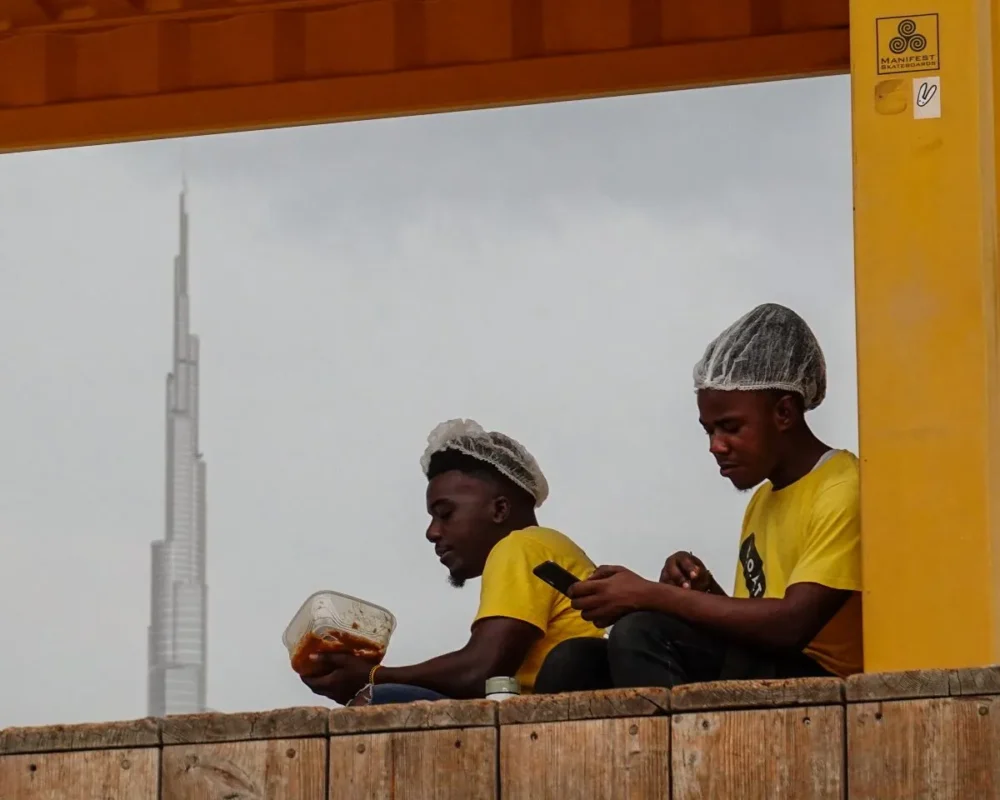The United Arab Emirates (UAE) has become synonymous with rapid development and modern luxury, showcasing architectural marvels and infrastructural advancements that draw global admiration. However, beneath this facade lies a troubling reality: the systematic violations of human rights experienced by the migrant workers who have built this nation. With migrant workers comprising about 95 percent of the UAE’s workforce, these individuals form the backbone of the country’s growth. Yet, they endure conditions that starkly contrast with the glitzy exterior of the UAE’s cities.
Central to the plight of migrant workers in the UAE is the kafala system, a sponsorship arrangement that binds workers to their employers. This system has been widely criticized as a form of modern-day slavery. Employers hold immense power over their workers, often confiscating their passports to restrict their freedom. Migrant workers find themselves at the mercy of their employers, who can report them as “absconding” to authorities if they attempt to escape abusive conditions. This legal framework creates an environment ripe for exploitation and abuse.
The UAE has made several legislative attempts to address concerns related to the kafala system. These include prohibiting recruitment fees, removing the requirement for employer permission to change jobs or leave the country, and enhancing access to labor dispute mechanisms. Despite these reforms, enforcement gaps leave migrant workers vulnerable to exploitation.
The UAE’s approach to trafficking reflects a narrow view, often not addressing abuses like passport confiscation and wage theft as potential trafficking crimes. Additionally, the UAE’s labor law excludes domestic workers and other vulnerable groups, increasing their risk of exploitation. High recruitment fees charged to low-skilled workers lead to debt bondage, where workers are forced to pay off debts through reduced wages. Other fraudulent practices include deception about job conditions and contract substitution, where workers are made to sign contracts with unfavorable terms in languages they do not understand. Common abuses include passport confiscation, fines, detention, deportation for “absconding,” and precarious working and living conditions. The Dubai Expo 2020 highlighted such abuses, with reports of widespread passport confiscation.
The construction sector, a major contributor to the UAE’s skyline, is where the most egregious violations occur. Migrant workers in this industry often work over 50 hours a week without a single day off for months. Although UAE labor laws stipulate a maximum of eight working hours per day and 48 hours per week, these regulations are frequently flouted. Workers are entitled to breaks and paid leave, but these rights are seldom honored, leaving workers to toil continuously without respite.
The physical demands of construction work are exacerbated by the extreme heat, leading to severe exhaustion and heat-related illnesses. Accidents are commonplace, with workers suffering injuries from falls, power tools, and exposure to hazardous materials. Medical care for these injuries is grossly inadequate, often limited to basic painkillers, and workers are required to repay medical expenses, further indebting them.
The disparities in reporting and acknowledgment of these deaths reflect an unsettling reality: the lives of migrant workers are often seen as expendable in the pursuit of economic progress. While the UAE continues to build its iconic skylines and modern infrastructures, the human rights abuses and health disparities among migrant workers remain a dark, unspoken cost of this rapid development.
The UAE’s economic success is built on the labor of millions of migrant workers, who face numerous abuses under the kafala system. Significant reforms and strong enforcement are crucial to improving their conditions and ensuring the UAE meets its international human rights obligations. The international community’s role in supporting and pressuring the UAE is vital in this ongoing struggle for migrant workers’ rights.

